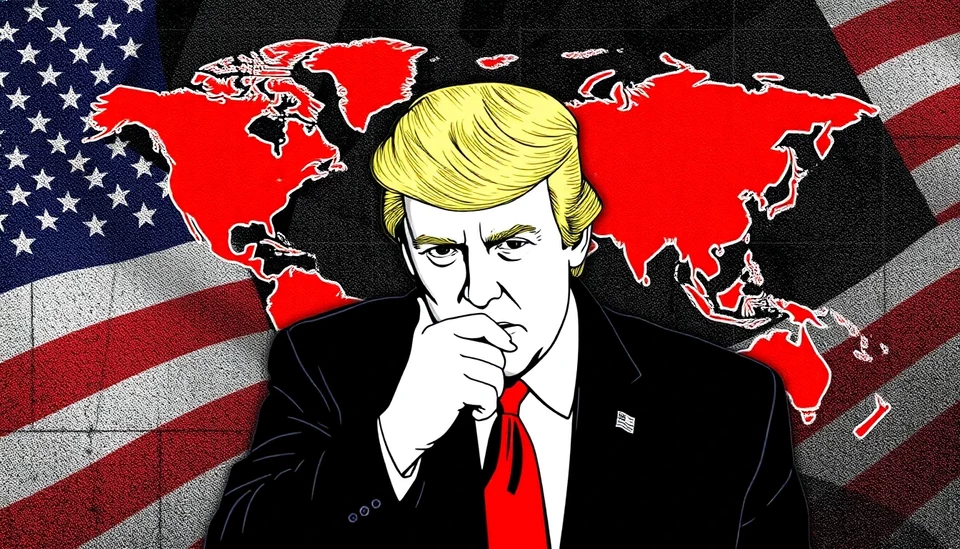
In a bold move reflecting his administration's ongoing commitment to prioritizing American interests, former President Donald Trump has announced the reintroduction of extensive tariffs on a variety of imported goods. This decision, characterized by many economists as a potential game-changer, has ignited considerable trepidation across global markets, provoking swift reactions from foreign governments and leading investors to brace for an economic upheaval.
Trump's return to the tariff playbook comes at a time when trade relations are already strained, particularly with China and the European Union. The implications of these tariffs have caused immediate market fluctuations, indicative of the heightened volatility expected in the days to come. Many analysts have voiced concerns that this could lead to a ripple effect, impacting supply chains, consumer prices, and potentially pushing the economy towards a recession.
The specifics of the tariffs include increased duties on sectors such as consumer electronics, automotive parts, and heavy machinery. This decision, explained by Trump as an effort to “protect American jobs,” is rooted in a long-standing belief that harsh trade measures can help re-establish the U.S. as a leader in manufacturing and production.
Market experts are closely watching the reactions from trading partners. China has already expressed its discontent, warning that it is prepared to retaliate, which could lead to a renewed trade war similar to the one that rocked the economies during Trump's previous presidency. The European Union has also indicated its intention to respond, raising concerns about tit-for-tat tariffs that could further destabilize international trade.
The tariffs are projected to affect not only multinational corporations but also small businesses that rely heavily on imported materials. Industry leaders have voiced their apprehension regarding the increased cost pressures that could result from these tariffs. Moreover, consumers might soon witness significant price hikes on everyday goods, as these additional costs will likely be passed on.
Financial analysts underscore the precarious nature of the global economy, as many nations are still navigating recovery efforts following the pandemic. A sudden increase in tariffs raises alarms about an economic downturn that could reverberate long-lasting effects, particularly in partnership dynamics between the U.S. and its trading partners.
In tandem with these developments, stock markets experienced downward trends almost immediately following the announcement. The sudden shift has unsettled investors, many of whom are fleeing to safer havens as uncertainty looms large. Financial institutions predict increasing volatility, as the long-term effects of these tariffs remain largely unpredictable.
Ultimately, the reintroduction of tariffs by Trump is set to be a defining moment for both the U.S. domestic economy and international trade relations. As markets react and global dynamics shift, the implications of this policy move will be closely monitored across all sectors.
As the situation unfolds, reactions from key political figures, relevant trade organizations, and economists will play crucial roles in shaping the narrative. Whether this approach will revitalize U.S. manufacturing or lead to broader economic challenges remains to be seen.
In conclusion, the economic landscape is at a crossroads, and stakeholders across the globe are bracing for potential challenges ahead as the policy unfolds.
#TrumpTariffs #GlobalEconomy #TradeWar #StockMarket #EconomicImpact
Author: Daniel Foster




